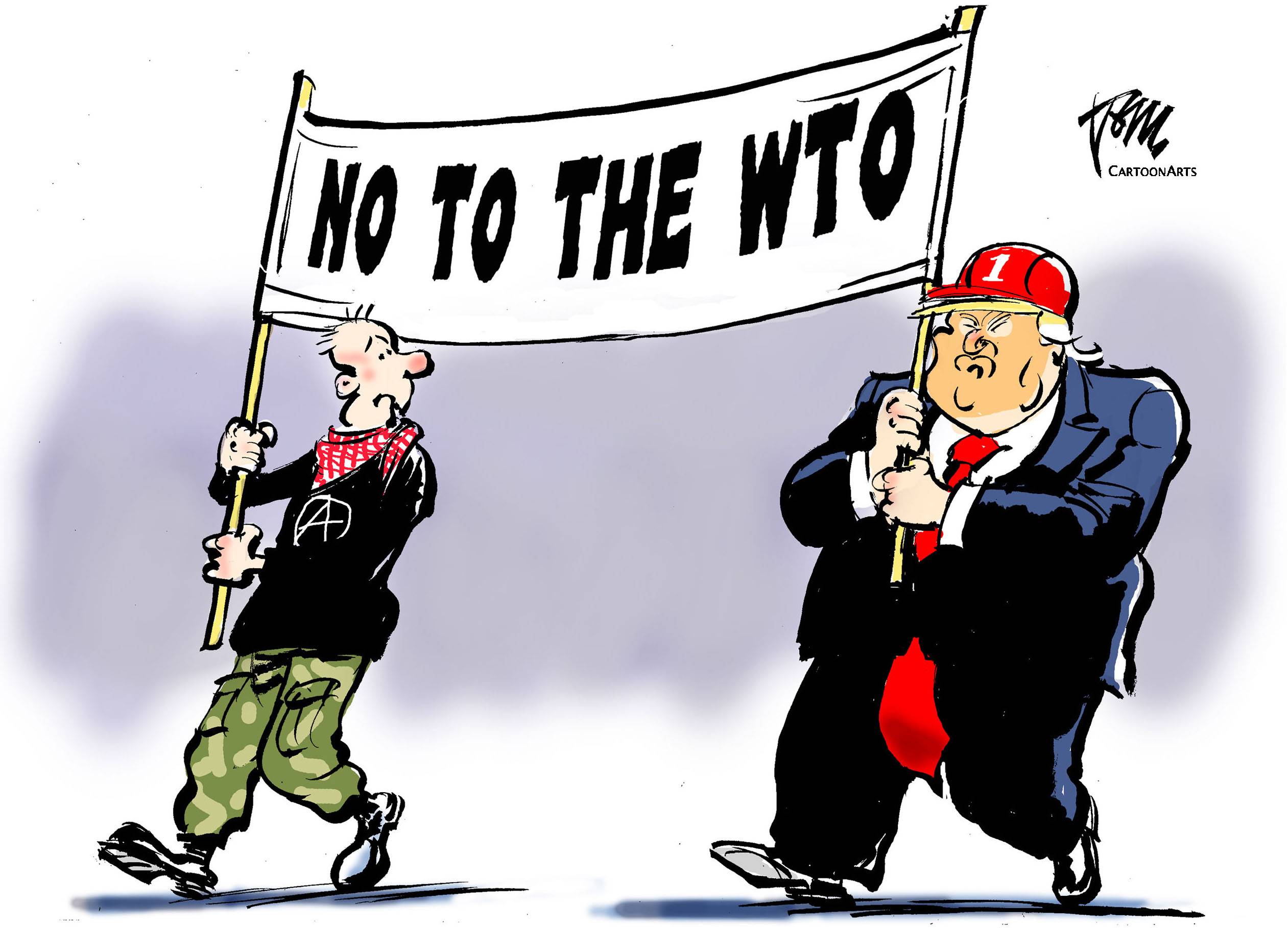Robert Azevedo, director-general of the World Trade Organization, will leave the office in August, a year before the end of his term. Behind his sudden resignation is the disfunction of the WTO.
The WTO has two key functions. One is legislative — drawing up new rules on trade in response to economic changes over time through negotiations among the member countries. The other is a judicial — dispute settlement procedures to judge whether member states are following its rules when a trade dispute crops up and to call on violators to correct their behavior.
What's going in the rule-making negotiations at the WTO? The General Agreement on Tariffs and Trade governed goods trade. The Uruguay round negotiations under GATT, which started in 1986 and were concluded in 1993, strengthened rules on agricultural and textile trade — which had been insufficient — and made new rules on services trade and intellectual property rights, areas that had previously not been covered. Out of this the WTO was born.

















With your current subscription plan you can comment on stories. However, before writing your first comment, please create a display name in the Profile section of your subscriber account page.